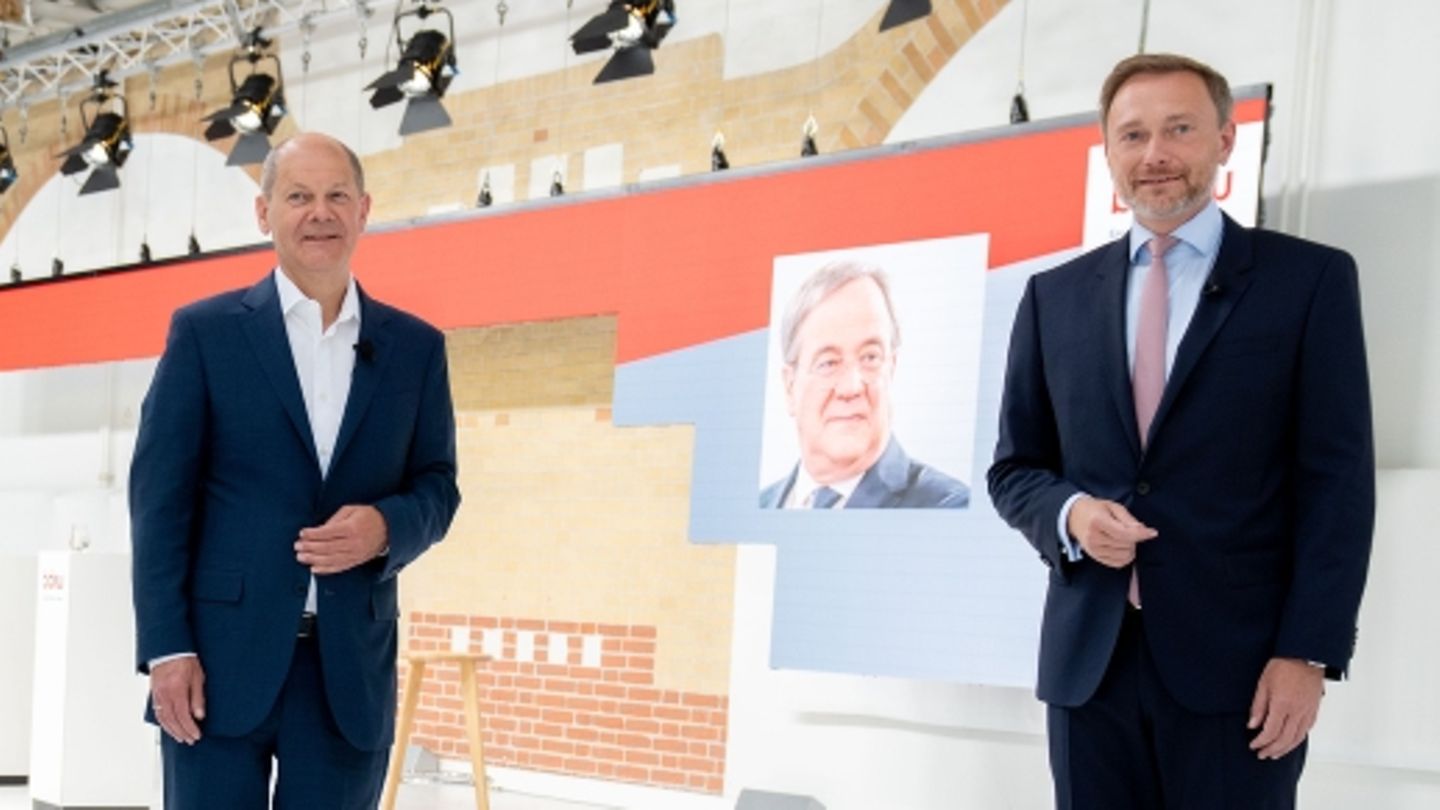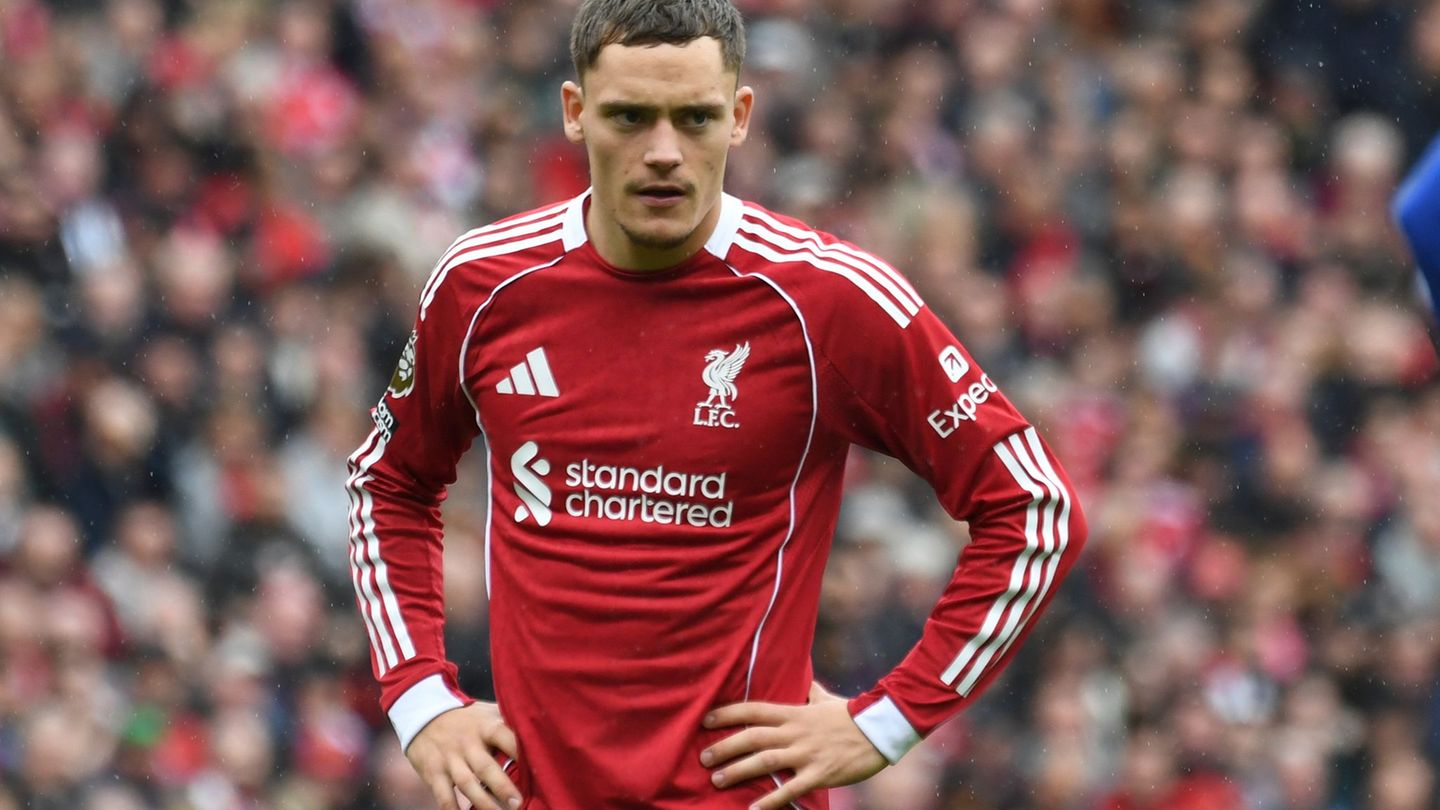Press review
The general election is over, but it is not yet clear who will rule Germany in the future. For a coalition to be formed, it is now primarily a matter of two parties. This is how the German press commented on the election result.
Germany voted and yet there is great perplexity on the morning after the general election. Although the SPD is the strongest force according to the results of the count and wants to appoint Olaf Scholz as the next Chancellor, the Union, despite its historic defeat, also claims to lead the government. The only possible two-party alliance would be a new grand coalition, which neither the SPD nor the Union want. This is why there is likely to be a three-way alliance in the federal government for the first time since the 1950s. Mathematically, both a traffic light coalition (SPD, Greens and FDP) and a Jamaica alliance (Union, Greens and FDP) would be possible.
For the German media, the new start in the post-Merkel era shows the first signs of a “change in political culture”. At the same time, they warn of coalition negotiations lasting “months” and emphasize the good starting position of the Greens and the FDP.
The press review at a glance:
“Badish newspaper”: It was remarkable that FDP leader Christian Lindner offered talks to the Greens on the evening of the election. What was even more remarkable was that Annalena Baerbock promptly accepted the offer. (…) Such explorations between smaller, potential partners would previously have been unthinkable. Who knows, the first change in political culture that this election result is forcing may already be emerging here.
“Frankfurter Allgemeine Zeitung”: The SPD and the Union now derive the mandate to form the federal government from their election results. Because they do not want to form a coalition again and there are not enough seats for a purely left-wing alliance, both Scholz and Laschet are just a pact with the Greens and the FDP. These two parties will decide the name of the next Federal Chancellor. Germany is facing months of coalition negotiations that have never been done before. The Union parties would no longer be of any help if, in this situation, they did not (really) stand unanimously behind their candidate for chancellor and strengthen him as much as possible. According to initial statements, even the CSU recognized this.
“Handelsblatt”: The SPD will try to make the FDP an offer that it cannot refuse. Scholz advertises with trust and the promise to keep to agreements. He knows about the trauma of the FDP, which felt betrayed by Merkel. Laschet, in turn, has to convince the Greens that they are in better hands with him than with the Social Democrats. His balancing act will be more difficult than Scholz’s. Laschet is only allowed to offer the Greens so much that the FDP does not give up. But it has to be so much that the Greens want to govern with him and the FDP. At the end of this historic day, the following applies: the curtain has fallen and all questions remain unanswered.
“Leipziger Volkszeitung”: One thing is certain: it will be a new start, one way or the other. The threat that this or that candidate is merely a manifestation of the status quo will quickly reveal itself as the noise of the election campaign. Because all parties agree: a lot has to happen in this country. Above all, the Greens and / or the FDP will nudge their core issues within a new government.
“Mitteldeutsche Zeitung”: After years of quarrels and losing, the SPD is now looking up again. The party was able to clearly improve its election results from four years ago and signal: We are still here and we want power. In Mecklenburg-Western Pomerania, too, Prime Minister Manuela Schwesig confirmed this boost with a very good election result. For Olaf Scholz, however, the turnaround also brings satisfaction to his own party. Because: As party chairman, the SPD comrades did not want him. That certainly hit him deeply back then. Now he has shown all doubters how to score very confidently with the voters.
“Neue Ruhr / Neue Rhein-Zeitung”: Of course, Laschet could arrange talks with the Greens and Liberals. But such a Jamaica alliance involves uncertainties. Lindner would still accept green climate demands, but he will block himself on the minimum wage. Olaf Scholz can also talk to the Greens and the FDP. But even there Lindner is in charge: he will not be comfortable with two more “left” partners. The Greens must be disappointed. And unpleasant questions will surely arise in the party soon. Would Habeck have done better? In any case, the topic of “climate protection” does not seem to have impressed as many people as Ms. Baerbock and her colleagues had hoped. Of course, this does not rule out that many voters want changes in climate policy – but not as radically as requested by the Greens. Incidentally, this realization will bother the young fans of “Fridays for Future”. Most of them are too young to vote.
“Nordwest-Zeitung”: After the bitter losses in the post-Merkel era, the CDU will have to find itself again. Will that work with Laschet? In the party, the power struggle and the search for the guilty party for the election debacle will break out with full force. Especially when the Union has to sit on the opposition bench. There are already many indications that this could happen – even if Laschet continues to fight for the Chancellery with the courage of desperation. SPD chancellor candidate Olaf Scholz can be more confident. He rolled up the field from behind and brought the SPD unexpected profits for a long time. However, he too has a party leadership on his neck, which now wants to become visible again after the election campaign that was completely focused on him. For Scholz this means: He not only has to lead coalition negotiations with widely divergent claims, but also find a line in his own party (s).
“Rhein-Zeitung”: The good news: Without the FDP and the Greens, little is likely to go in forming a government. Good because both CDU and SPD – Scholz or Scholz not – after 16 years of Merkel are exhausted in their own way and need fresh impetus. The position of the Greens is still comfortable despite disappointed chancellery dreams because they are compatible on all sides. Even if, depending on the current situation, red-green-red remains where it belongs: in the political ghost train. The FDP is currently the real kingmaker. SPD and Union hang on the Lindner flycatcher. The latter owes this not only to the unprofessional nature of its top candidate but also to the eternal Chancellor. For all her merits, she has ruled too long. In the end, she believed her own legend of the Über-Mutti and put her party and the people in the sleeping car. But we have to get out of this if we don’t want to risk our future.
“Swabian newspaper”: Speed dating has been around for almost 20 years. New relationship partners should be found in the shortest possible time. There is no such coupling process in politics, even if four potential partners have been looking for a stable relationship since Sunday evening. Two men can become Federal Chancellors. You have to convince your potential brides with promises and the ability to compromise. With his candidacy, Olaf Scholz made the Social Democrats strong again. He is the winner of the election. Armin Laschet has received more encouragement than the surveys thought possible a few weeks ago. In a few weeks, it will be of secondary importance whether the current result will be perceived as a disappointment by the eco party. The green negotiators will quickly catch up and make clear demands. Even the FDP, which is strong by its standards, knows that this time it cannot brusquely reject the attempted Anbandel. There are many options. Scholz and Laschet are challenged.
“Southgerman newspaper”: All the SPD Bundestag candidates, for whom a mandate was illusory for months and who have now made it after all, should see their hero in Olaf Scholz for a while. The difference between 2017, the Schulz Effect, and 2021, the Scholz Effect, is that the latter lasted. But grateful Schrodis do not vote on a coalition in the SPD, but the members – who are less obliged to Scholz and possibly persuade themselves that this beautiful chancellery is of no use if the truth is that Finance Minister Christian Lindner sets the guidelines for politics. Scholz cannot enforce a traffic light against them, and the SPD has always been good at guilty of its leaders.
David William is a talented author who has made a name for himself in the world of writing. He is a professional author who writes on a wide range of topics, from general interest to opinion news. David is currently working as a writer at 24 hours worlds where he brings his unique perspective and in-depth research to his articles, making them both informative and engaging.




